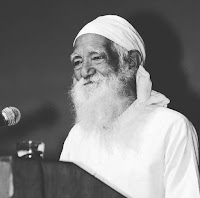Raju Korti
If my memory serves me right, I read Ayn Rand's much celebrated "The Fountainhead" and "Atlas Shrugged" sometime in 1979 when I had little understanding of Objectivism, Egotism, Self Respect and Self Esteem as philosophical concepts. I could understand precious little from the bulky intellect that both the books had to offer beyond the lofty and pompous speech of Howard Roark, the brilliant young architect painted in "The Fountainhead." I suspect, it was more out of the literary flourish than the philosophy that it sought to illustrate with painstaking emphasis.
One particular extract of Roark's magnificent courtroom speech caught my imagination: "Nothing is given to man on earth. Everything he needs has to be produced. And here man faces his basic alternative: he can survive in only one of two ways -- by the independent work of his own or as a parasite fed by the minds of others."
Rand's theories became clearer from her profile, the pivotal point of which was she was witness to the tumultuous Bolshevik revolution of the 1917 when its leader Vladimir Lenin launched a near bloodless coup d'etat against the ineffectual Dumas government. The author emigrated to the United States hating the Soviet system despite having had a grinding in Marxism-Leninism.
Rand's ideas and the way she buttresses her philosophies make her a cult figure with many non-academics but the academics do not seem very impressed. Occasionally, she did elaborate on her views in response to the readers but she hardly took the time to defend them against possible objections or to reconcile them with the views that she so fiercely expressed in her novels.
In due course, her profound discernment notwithstanding,I found her philosophical essays wanting in the self-critical, detailed style of analytic philosophy, or any serious attempt to consider possible objections to her views. My view was strengthened by her polemical style, contemptuous tone, dogmatism and cult-like behaviour of her fans. Her concept of Objectivism holds that there is no greater moral goal than achieving one's happiness, something that she postulates in "The Virtue of Selfishness" through moral integrity and the respect for the right of others.
I have little to say about her advocacy of laissez-fare Capitalism but her view point that subtly distinguishes Egoism and Egotism often diverted me to ideas about Self-worth and Self-esteem. Self-worth is how one perceives through other people's eyes while Self-esteem is how confident and worthy one feels about himself/herself. It also has a tangential reference to Acceptance that is big deal with majority people in their mundane existence.
One's self-esteem is crushed when one is around people that do not recognize one's worth. Long years of low self-worth makes one feel like a loser who doesn't deserve good things in life and working hard at developing worth and esteem is often defeated by Ego. One has to build up the right matrix to build and nurture all three. Acceptance is the third unknown in this differential equation.
As a Facebook friend Sharika Kaul puts it succinctly: You will never be good enough for some people even if you are more loving, more talented, more knowledgeable, more courageous, more this or that. You will never get that open acceptance or acknowledgement of your worth. And when that realization dawns on you, you must begin to delink emotionally from that relationship -- personal or professional. The lack of acceptance must not be allowed to define your self-worth because somewhere you will find that you will be accepted for exactly who you are and you will be celebrated too. Till then, you must continue to push through and continue your path of self-discovery. And even if you find there is no one who toots your horn or claps for you, you must do that for yourself brazenly and without fear."
For too long, I have believed that it is finally your life, your self-worth, your self-respect and your ego. If that is so why should acceptance gain so much importance for an individual? The answer is acceptance is as brittle a human characteristic as the others I have tried to understand in my limited understanding.
You celebrate them, lament them and hanker after them. Its human frailty. The buck stops there. If Howard Roark were to come out of the book from his larger-than-life character, he would have been me and you.









